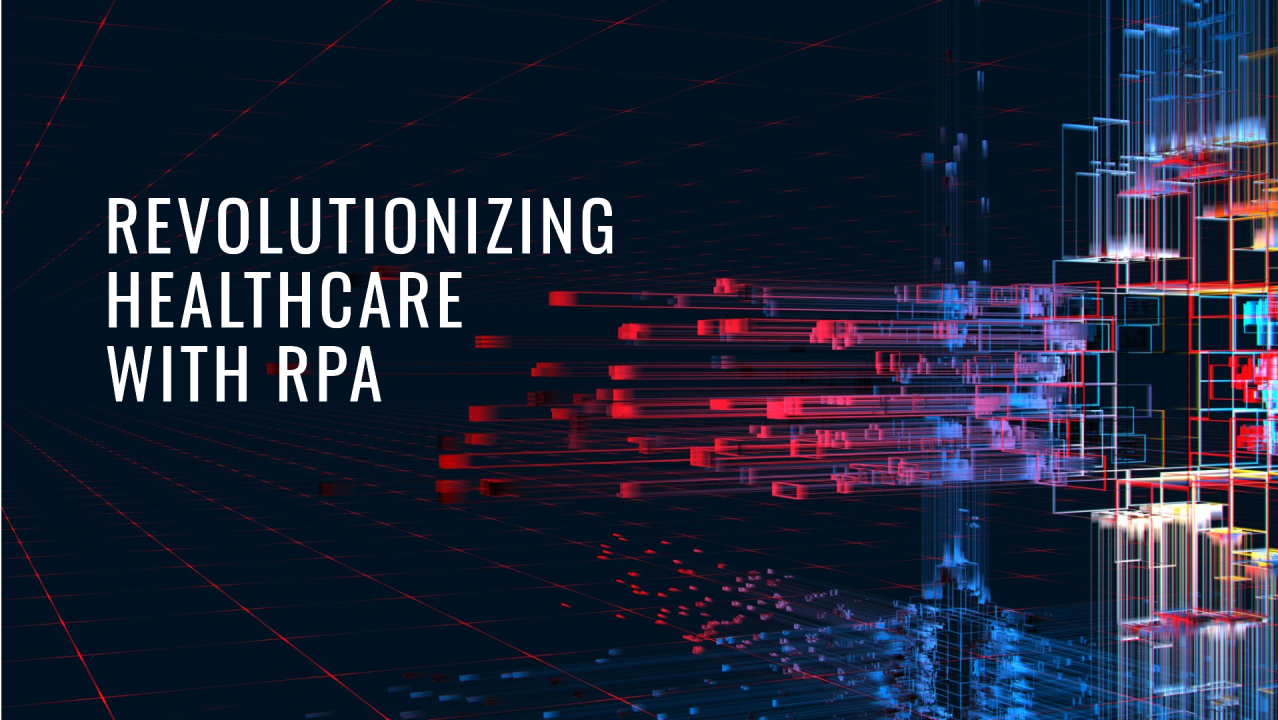
In the rapidly evolving landscape of healthcare, technology continues to play a pivotal role in enhancing patient care and streamlining operations. One such technological innovation that is making significant strides is Robotic Process Automation (RPA). By automating repetitive and time-consuming tasks, RPA is transforming the way healthcare providers deliver services, ultimately improving patient outcomes and operational efficiency.
What is RPA in Healthcare?
Robotic Process Automation (RPA) refers to the use of software robots or “bots” to automate routine, rule-based tasks in healthcare workflows. These bots mimic human actions, interacting with various healthcare systems and applications to perform tasks such as data entry, patient registration, claims processing, and appointment scheduling. By automating these tasks, RPA frees up valuable time for healthcare professionals, allowing them to focus more on patient care.
Benefits of RPA in Healthcare
- Improved Patient Care and Satisfaction: RPA enables healthcare providers to allocate more time to patient-centric activities. Automated updates of patient records eliminate manual data entry, allowing nurses to focus on bedside care. Clinicians can spend more time consulting with patients, leading to more in-depth assessments and tailored treatment plans.
- Enhanced Operational Efficiency: By automating administrative tasks, RPA reduces the burden on healthcare staff and minimizes the risk of errors. This leads to faster processing times for tasks such as claims processing and appointment scheduling, ultimately improving the overall efficiency of healthcare operations.
- Cost Savings: RPA can significantly reduce operational costs by automating labor-intensive workflows. According to a report from Deloitte, organizations can save up to 80% of time on transactional processes with RPA and improve data accuracy by up to 99% in reporting. These cost savings can be redirected towards front-end clinical requirements, enhancing the quality of patient care.
- Scalability and Flexibility: RPA solutions are highly scalable and can be easily adapted to meet the changing needs of healthcare organizations. As healthcare providers grow and evolve, RPA can be scaled up to handle increased workloads and new processes, ensuring continuous improvement in operational efficiency.
Real-World Use Cases of RPA in Healthcare
- Patient Registration and Scheduling: RPA bots can automate the process of patient registration and appointment scheduling, reducing wait times and improving the patient experience. By handling these tasks efficiently, RPA ensures that patients receive timely care and attention.
- Claims Processing: Automating claims processing with RPA reduces the time and effort required to handle insurance claims. This not only speeds up the reimbursement process but also minimizes the risk of errors, ensuring accurate and timely payments.
- Data Management and Reporting: RPA can automate the extraction, processing, and reporting of data from various healthcare systems. This improves data accuracy and consistency, enabling healthcare providers to make informed decisions based on reliable information.
- Clinical Documentation: RPA can assist in the creation and management of clinical documentation, ensuring that patient records are up-to-date and accurate. This reduces the administrative burden on healthcare professionals and allows them to focus on patient care.
Challenges of Deploying RPA in Healthcare
While RPA offers numerous benefits, its implementation in healthcare is not without challenges. Some of the key challenges include:
- Integration with Existing Systems: Integrating RPA with existing healthcare systems can be complex and time-consuming. Ensuring seamless integration requires careful planning and coordination.
- Data Security and Privacy: Healthcare organizations must ensure that RPA solutions comply with data security and privacy regulations. Protecting patient data is paramount, and any breaches can have serious consequences.
- Change Management: Implementing RPA requires a cultural shift within healthcare organizations. Staff must be trained to work alongside bots and adapt to new workflows. Effective change management strategies are essential to ensure a smooth transition.
The Future of RPA in Healthcare
As healthcare organizations continue to embrace digital transformation, the adoption of RPA is expected to grow. The potential for RPA to revolutionize patient care and operations is immense, and its benefits are becoming increasingly evident. By automating routine tasks, RPA allows healthcare professionals to focus on what they do best – providing high-quality care to patients.
In conclusion, RPA is a game-changer in the healthcare industry, offering a wide range of benefits from improved patient care to enhanced operational efficiency. As technology continues to advance, the role of RPA in healthcare will only become more significant, paving the way for a more efficient and patient-centric healthcare system.